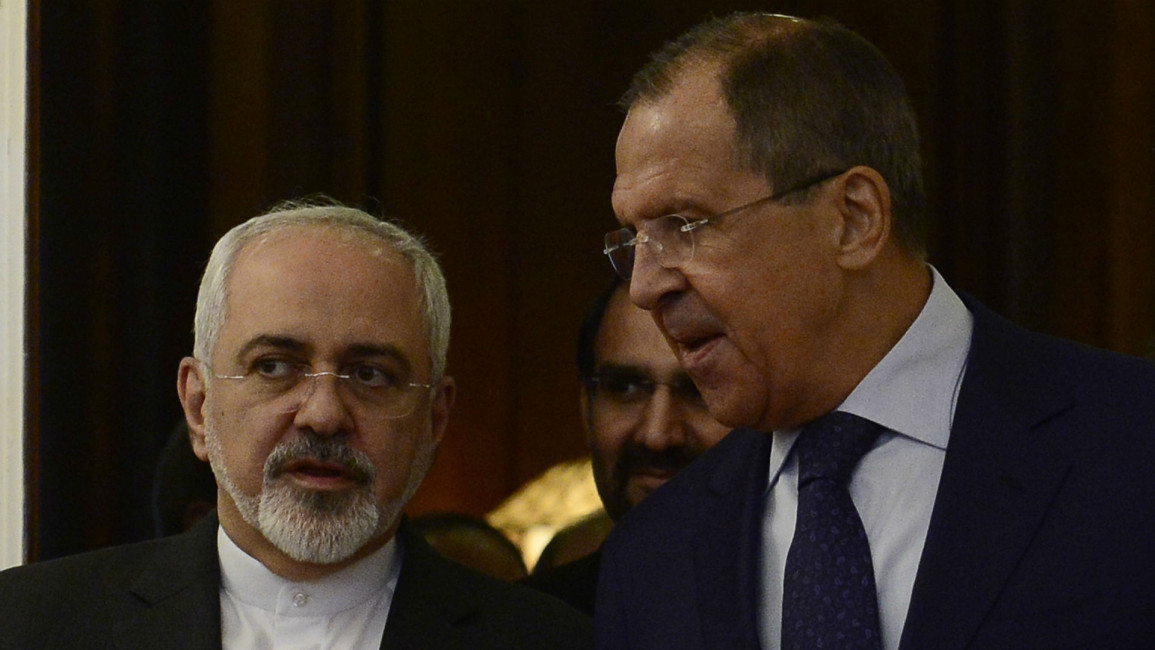Iran and Russia 'united' on Syria
The foreign ministers of Russia and Iran said after talks in Moscow that their two countries have a united position on Syria, with both diplomats warning against any outside attempt to dictate a resolution to the Syrian civil war.
The nuclear deal reached last month between Iran and world powers has led to a series of diplomatic moves aimed at achieving some sort of breakthrough in Syria.
Russian Foreign Minister Sergey Lavrov met last week with members of the Syrian opposition, while his Iranian counterpart, Mohammad Javad Zarif, was in Damascus to discuss ways of ending the war with Syrian President Bashar al-Assad.
"Our states hold a common position on regulating the Syrian crisis," Zarif, speaking through a translator, said at a joint news conference with Lavrov. "The Syrians must themselves decide their fate and their future, and foreign states should only make this easier."
Moscow and Tehran have both supported Assad in the conflict, which has left more than 250,000 people dead since it began in 2011.
The nuclear deal, which lifts sanctions against Iran in exchange for curbs on its nuclear program, has raised expectation in Russia for expanded trade with Iran, including in nuclear energy and defence. Zarif and Lavrov said they discussed the construction of new nuclear reactors and other projects.
Meanwhile, addressing the assembled members of an Iranian non-governmental organisation recently, Iran's Supreme Leader Ali Khamenei said that despite the ground-breaking nuclear deal with Western powers, Tehran would not permit western political, economic or cultural influence in Iran. He also added that the fate of this deal was still unclear, as it had not yet been officially ratified by Iran or the US.



